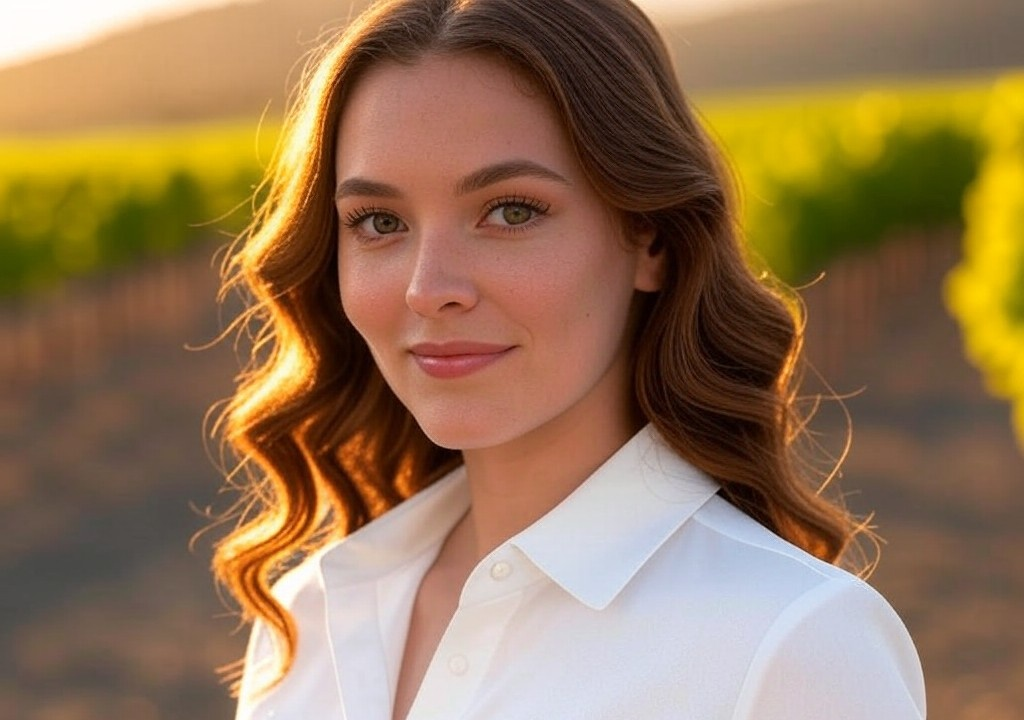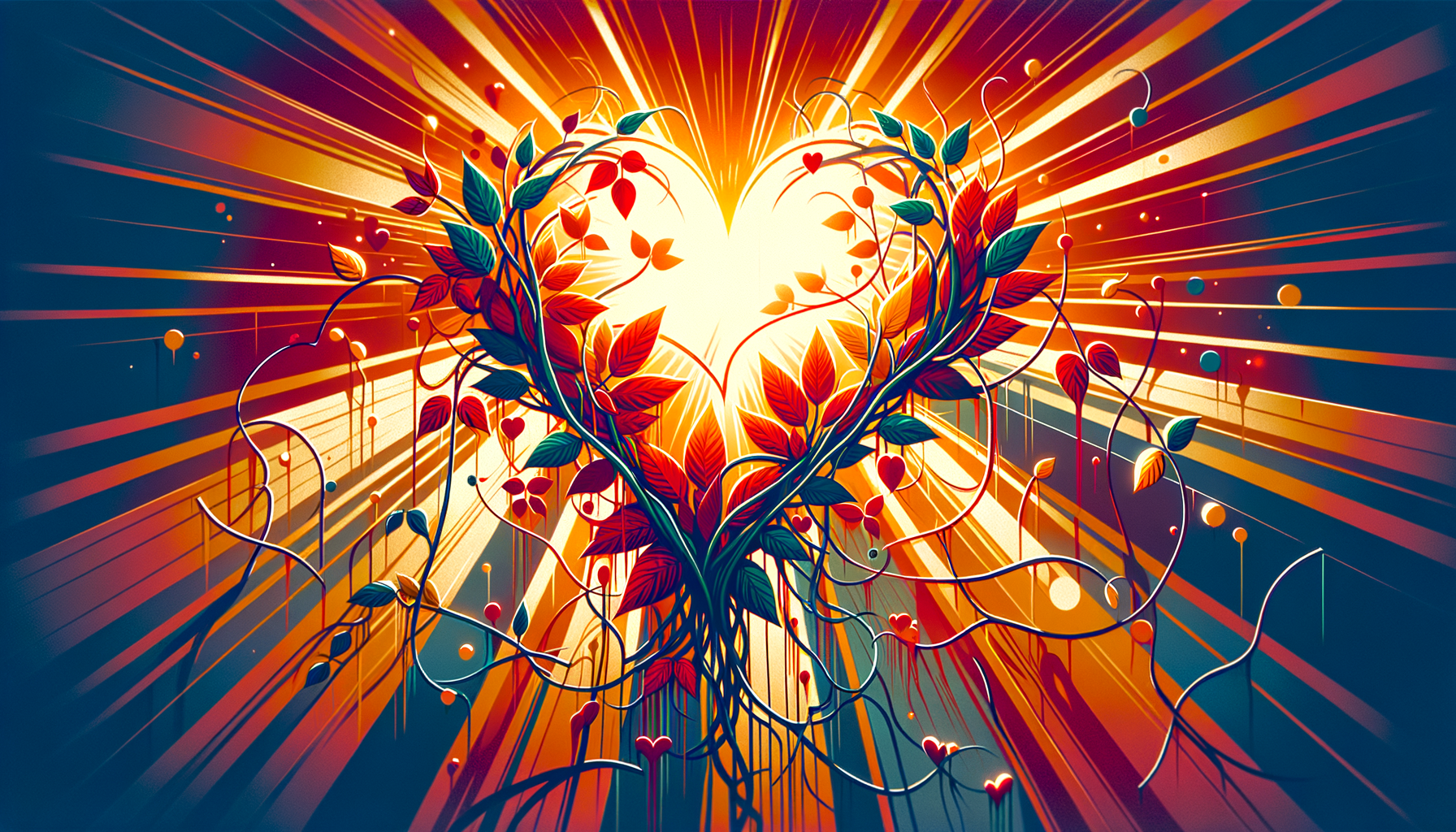How I Fell in Love with My Passion
A Love Story That Began in the Vineyard
Ask anyone where they experienced their first great love, and you’ll get a mix of stories: maybe a coffee shop meet-cute or a long, slow burn from friendship into romance. My first love story? It unfolded in a vineyard, between rows of plump Cabernet grapes, the golden Napa sun beaming down like it had lit the scene just for me.
Of course, I’m not talking about a person. (Not yet. We’ll get to that in a minute.) No, my first love was with food and wine. Romance entered my life not through a heart-fluttering crush, but through the symphony of flavors that demanded I pay attention to the world, to people, to myself.
Growing up in a family of sommeliers, I was arguably doomed—blessed?—to spend dinners dissecting the “spicy backbone” of a Syrah or debating if the mango notes in a Sauvignon Blanc were too loud for the soup course. Mondays weren’t about catching up on TV; they were downtime to plan our next vineyard picnic. At the center of it all was the belief that we weren’t just eating or drinking—we were connecting. Food and wine were shorthands for joy, stories, and (frankly) the occasional argument.
I thought this was totally normal until a neighborhood sleepover revealed that other families just… ate spaghetti. No pairing notes. No “Did you get the finish on that?” I was baffled. And yet, it was in realizing my family’s quirks that I came to understand how deeply this passion had been planted within me.
A Semester Abroad—or My Personal Rom-Com Plot
Fast forward to college: solid grades, a knack for writing essays with too many metaphors, and a growing curiosity about other people’s dinner tables. Naturally, I signed up for a semester abroad in France. When I arrived in Lyon, I immediately fell down the rabbit hole of the French approach to food. Meals weren’t a pit stop between activities—they were the activity, served with an unhurried sense of pleasure. A simple cheese wedge and baguette felt like a declaration of self-love.
I fumbled through translating menus, ordered escargot when I thought I was getting a salad (yes, I ate it anyway), and learned to savor every sip of wine as if I were an art collector examining brushstrokes. Somewhere between a glass of Châteauneuf-du-Pape and a perfectly seared duck breast, it hit me: food wasn’t just about satisfying hunger, it was about shared intimacy, about layering memory onto flavor.
To borrow a rom-com trope, this passion wasn’t exactly a meet-cute—it was more of a slow realization, one where the music swells at just the right time.
How Flavor Became My Compass
People have often asked me: How does food and wine tie into relationships? Let me put it this way—pairing a meal with wine is just a fancier version of a Tinder match. You’re looking for balance, for something that complements without overpowering. A tannic, moody red isn’t going to vibe with a delicate poached salmon (basic compatibility issues), but it might set off fireworks with smoky barbecue (mutual intensity—hello, sparks!). The same logic applies to humans.
Wine education, and later writing about food, became my guide not just to professional life, but to human connection. I learned to decode flavor descriptions like I now decode emotional cues. Is this pairing thoughtful? Is it harmonious? Does it leave a bitter aftertaste?
Here’s an example: once, I went on a high-stakes date to a chic wine bar. The guy ordered a Pinot Noir because, as he smugly explained, “It’s always low-maintenance.” Now, I like a Pinot as much as the next person, but not every situation calls for it. This was a moment that begged for taking risks—a bold Grenache, maybe. His “safe pick” killed the vibe, much as it killed the fledgling chemistry between us. If he approached romance like he did wine—unadventurous, predictable—well, no wonder we fizzled before dessert.
Sometimes, bad pairings teach as much as good ones.
Lessons from Love and Wine
What I’ve learned—and what you can learn, too—is that passion is not a passive thing. Like love, it takes maintenance, curiosity, and the willingness to occasionally get it wrong (looking at you, 2017 Chianti served with Taco Tuesday). Whether it’s finding the right wine, the right partner, or the right path in life, my years in vineyards and kitchens have taught me lessons I think anyone can use. Here are a few:
-
Slow Down.
The best things aren’t rushed. Who can properly enjoy a meal—or a relationship—by speed-eating or fast-forwarding through the messy parts? Pause to appreciate what’s in front of you. -
Balance Matters.
Just like a dish finds harmony with the right bottle, relationships thrive when both sides bring something complementary to the table. Too much sweetness? Overwhelming. Slight bitterness? Sure—if it enhances the whole. -
Be Curious.
Try the unusual pairing. Say yes to tasting something unexpected. Sometimes the strangest combinations—blue cheese and honey, for instance—become the most memorable. Translate this to dating, and you might find yourself saying yes to someone outside your “type.” -
Learn to Let Go.
Not every bottle is worth finishing, and not every romance needs to be uncorked a second time. Recognize when something doesn’t fit and move on without guilt.
Passion as a Love Story
Today, my love affair with food and wine has morphed into a life I couldn’t have predicted: a career writing about flavor, consulting with vineyards, and helping people understand that taste—like love—is deeply subjective and unabashedly human. My passion isn’t just about knowing wine regions or memorizing grape varietals; it’s about embracing the connections that good food and drink create.
Like a great romance, passion grows when you nurture it. It evolves. It challenges you, sometimes frustrates you, but ultimately it brings you joy. And while I can’t personally promise your relationship will go the distance (regrettably, I’m not Cupid), I can tell you this: if you approach your love life with even half the intention you’d bring to a multi-course dinner, the results might just surprise you.
So, pour the wine, light the candles, and lean in—because whether we’re talking about food or love, the magic is in the tasting.




















